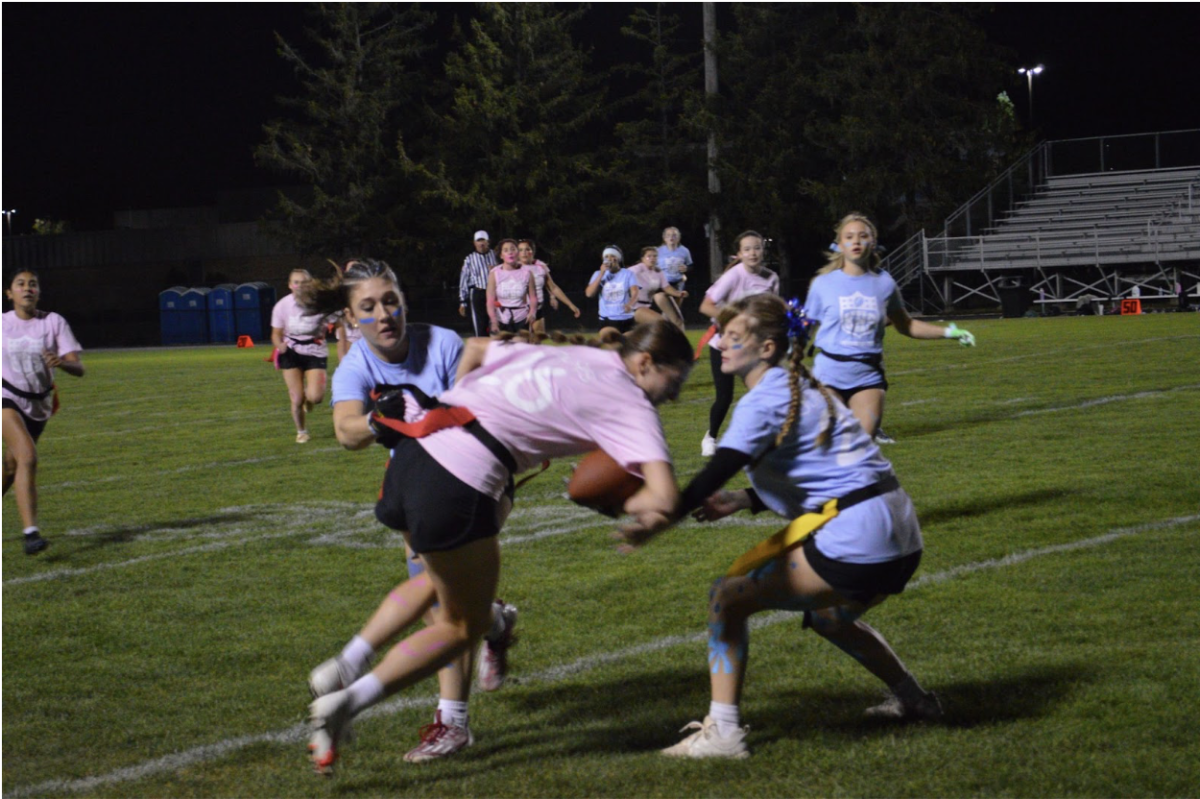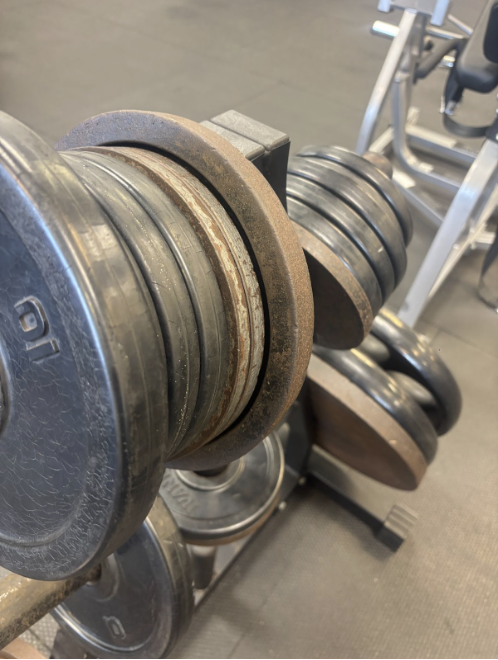The announcer’s booming voice almost, but not quite, drowns out the sound of the crowd. The smell of grass is overwhelming. The bright-colored uniforms zoom past in between the eight lanes. There is a certain electricity in the air, a product of excitement, but for many, the excitement is overshadowed by their stress.
For Emma Gatz, who was a freshman at the time, stress and anxiety were overpowering the rest of her senses during her 2022 track & field sectionals. She felt pressure to do well from what felt like everyone: her coaches, teammates and even herself.
Gatz is not alone in dealing with a high amount of stress due to high school sports. According to a study done in 2023, 60% of high school student-athletes have experienced moderate to severe stress from just their sport.
A friend and teammate of Gatz pulled her to the side after she saw how stressed she was feeling. The friend talked her through the stress she was experiencing by pointing out that while her stress is normal, there is no need for her to be so anxious. Since she was just a freshman competing at the high school level for the first time, the amount of pressure and stress she put on herself was irrational and unnecessary. Gatz took a deep breath, and then, without the stress overpowering her thoughts, she was able to focus on doing what she needed to do to get ready to compete.
Gatz dealt with her stress by stepping away from what overwhelmed her, which is how school psychologist Allie Cox recommends her students deal with their stress.
Sports are one of the leading causes of stress for high school students, with schoolwork and packed schedules also being significant contributors. High school students often have to balance many responsibilities, from homework and tests to sports and family issues.
Social issues can be another major stressor for students in high school. Students are introduced to new responsibilities while they are expected to become more independent. A lot of students feel the need to fit in or be popular, which can put a lot of pressure on them to act a certain way.
With the many ways high school students can encounter stress in their lives, learning proper coping mechanisms, as is learning what works best for them specifically, is incredibly important.
Cox often sees students coping with their stress with music, specifically utilizing headphones to remove themselves from a stressful situation without having to physically leave.
“I think music is a great way to deal with stress,” Cox said. “I also think exercising is a really good way to deal with stress.”
Gatz is an example of a student who copes with their stress through exercise. She also says that art therapy, like drawing and painting, is another useful way to calm herself down.
Additional ways students can combat stress include keeping a journal, sleeping and eating well, limiting caffeine and meditating.
When students fail to deal with their stress, it negatively affects other areas of their lives. This might include their schoolwork, their performance in sports or their relationships.
“For school, it causes me to procrastinate a lot,” Gatz said. “For sports, it causes me to get burned out pretty easily. I go through that probably at least once a year.”
Stress on anyone has also been shown to increase the chances of experiencing anxiety and depression.
Beyond the emotional effects, students who are stressed will also deal with some physical effects. Stress raises cortisol levels, which is a hormone that plays a role in regulating blood pressure and the immune system. If students deal with stress chronically, these physical effects may begin to hinder their cognitive performance.
Coming in contact with stress during high school is inevitable. It is something that affects everyone, whether it is a student who has a test they did not prepare for or a student at a track meet.













